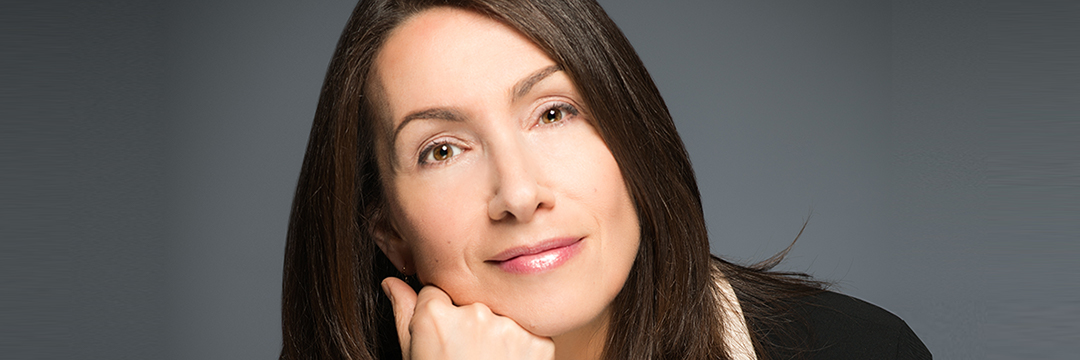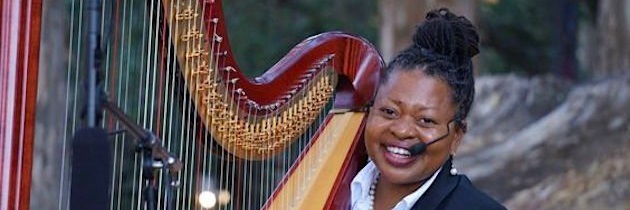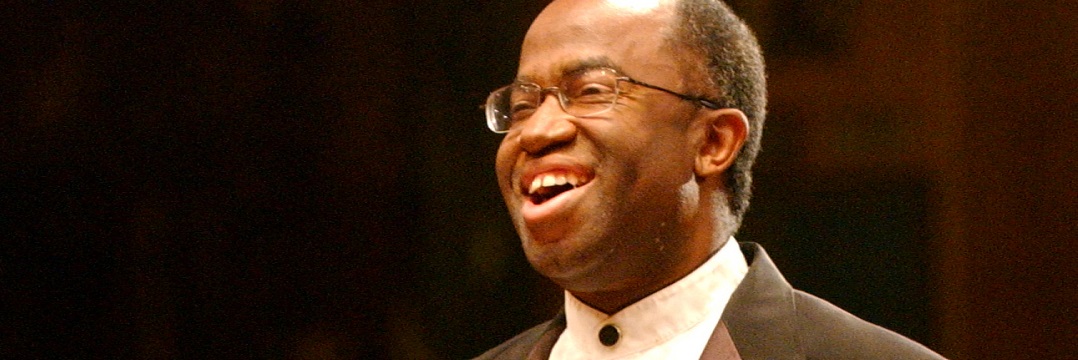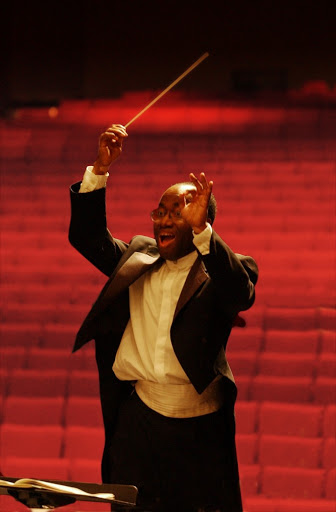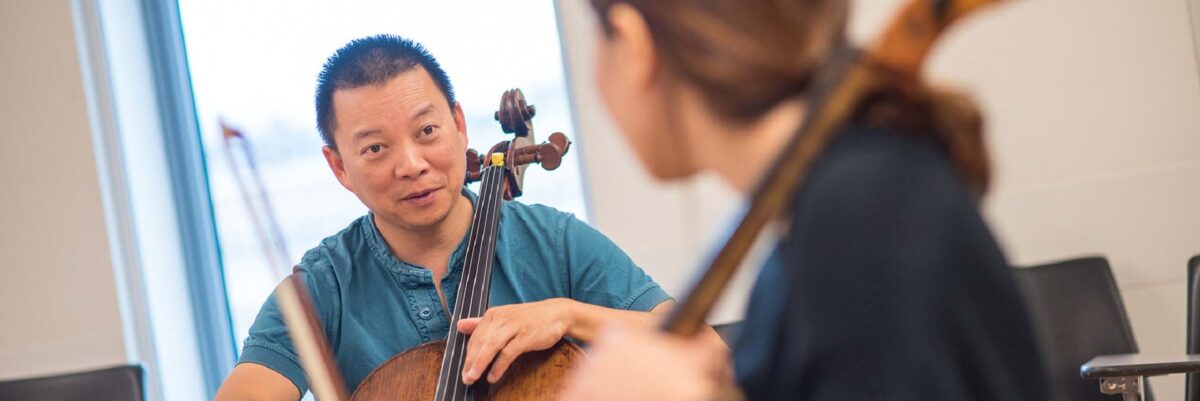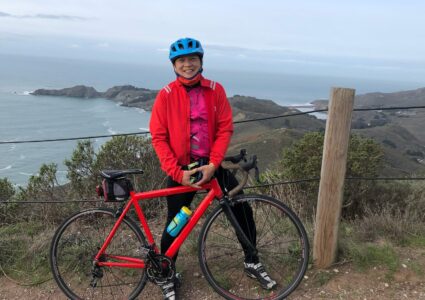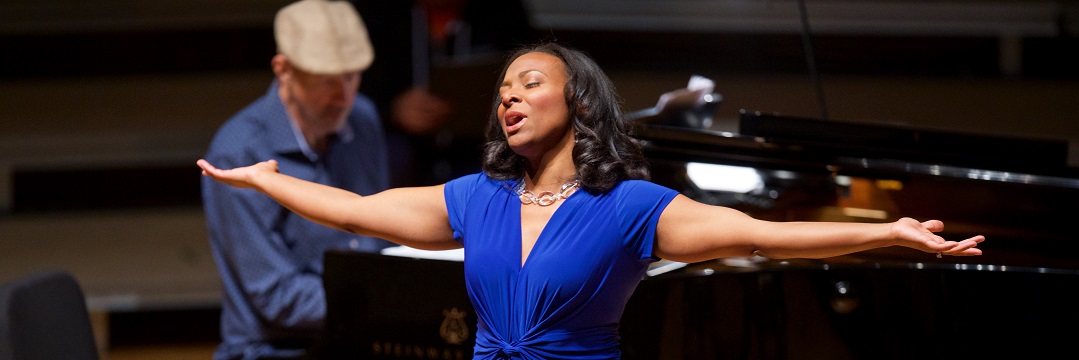“Multifaceted” is an understated—and inadequate—word to describe our June 19 online workshop mentor, Candace Johnson. An acclaimed lyric coloratura who has sung the lead roles in “Le Nozze di Figaro,” “Suor Angelica,” and other works, she also teaches applied voice and musicology at UC Berkeley; wrote and performed a one-woman show, “VOX in a BOX,” that fuses her classical training with her Black musical heritage; and created “CJ’s FitnesSing!”, which combines vocal exercises with physical training. In our workshop, Candace will share her deep knowledge of Negro spirituals and invite us to sing them together. The timing is auspicious: June is African American Music Appreciation Month, and June 19 is Juneteenth—the holiday that celebrates the June 19, 1865, announcement in Galveston, Texas, of the end of slavery, two and a half years after the Emancipation Proclamation. We reached Candace at her Bay Area home to learn more about her many musical interests and projects.
When did you become interested in music? Did your family encourage you?
I grew up in Jackson, Tennessee, the youngest of six children. Everyone in my family sang well—my mother had a sweet, bright voice, and my father had a nice baritone. I began taking piano lessons in third grade, which was late compared to my peers. My friends had this regimen, and I wanted to be part of it! I started playing classically, but my mother felt it was important to also have the experience of learning to play by ear, which is part of the Black musical tradition. My first teacher taught me some common church improvisations—how to look at a piece of music and play block chords with a ragtime bass. That skill has greatly served me as a singer and a teacher. If you understand a piece’s harmonic underpinnings, it enhances your understanding of how the vocal line is married to that harmonic flow.
My second piano teacher had both classical and Black church experience. He taught me to take a Rachmaninoff arpeggio and stick it in a piece of church music. It was phenomenal training, and I stress it to my students now. They need to know that all forms of music are valid—that the things they’ve been hearing all their lives, whether it’s country or gospel or classical Indian music, are just as valid as what the academy calls “legitimate.”
When did singing enter the picture?
I began singing in our church choir when I was about 7, and very quickly started doing solos. I traveled around the state, singing in churches and participating in telethons and singing competitions, including ACT-SO [Afro-Academic, Cultural, Technological, and Scientific Olympics], a national competition sponsored by the NAACP. Through that experience, I had the opportunity to work with Dr. William Garcia, a former voice teacher at Lane College, a historically Black college in my hometown. He exposed me to bel canto and the Western European tradition, and he’s the reason I was able to be admitted to an excellent collegiate music program. My parents came from blue-collar backgrounds and hadn’t gone to college, nor had many others in my extended family. I had my sights set on Vanderbilt University, but a guidance counselor—an African American woman!—told me I wouldn’t get in. Dr. Garcia prepared me for the audition, and I got in.
What led you to start FitnesSing! in 2020, at the beginning of the pandemic?
I’d had the idea for several years: Why not combine my two passions, fitness and singing? I’d taken dance lessons in junior high and high school, and after I graduated from college I became Miss Black Tennessee and did a lot of weight training and conditioning. It fueled something in me, but then I got married, had two children, and gained weight. It was when we moved to New York for a sabbatical and I started taking a class at 24 Hour Fitness in Midtown that I reconnected with movement. When we returned to California I immediately found a gym. It all started to come back!
FitnesSing! became a reality through Stephanie Weisman, the artistic director at The Marsh, which has performance spaces in San Francisco and Berkeley. We’d met in 2019, when I did “VOX in a BOX,” my one-woman show at The Marsh. When the pandemic began, I told her I was frustrated—I had all these ideas but nowhere to put them. Stephanie had just started Marsh Stream, an online platform, and she invited me to bring FitnesSing! there. It’s been wonderful—I have people who’ve been with me since we started. They come for the singing, for tidbits about building a healthy voice, for movement, and for community.
[Start moving with FitnesSing!]
Could you give us a little background about spirituals, to prepare us for the workshop?
From the standpoint of musical structure, the spiritual is a folk music. The melodies are very singable, and the form is strophic: an A part and a B part, very hymnlike in structure. But just because it’s accessible doesn’t mean the spiritual isn’t complex.
The spiritual was born out of enslaved Africans’ experience: acquiring some English language, living under treacherous conditions, using vocal calling as a way of expressing emotions. This is therapy. But spirituals also have a functional value: Look at the coded language in “Wade in the Water” and “Follow the Drinking Gourd.” The only way we’re going to get to the Underground Railroad is to go in the river so the bloodhounds won’t catch us. To follow the Big Dipper in the sky.
There are healing properties in the melody and in the communal singing—especially for me, as an African American singer and a person who specializes in spirituals, but also for all of us.
Any post-pandemic plans you’d like to share?
This Amateur Music Network workshop is the genesis of something I’d like to roll out this summer and fall. I call it the American Restoration Mass Choir, and it would include singers of all races and backgrounds. My vision is to have local chapters throughout the country. The repertoire would center Negro spirituals, and rehearsals would encourage safe cross-cultural dialogue. Once a year we get together for a concert, and we center the spirituals. We’d be doing racial reparations through music.
